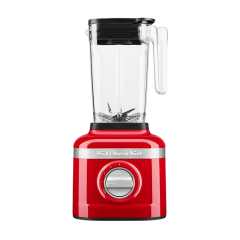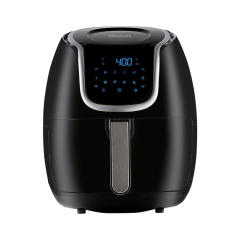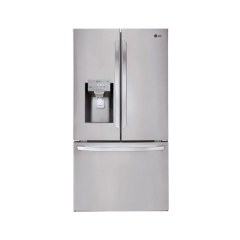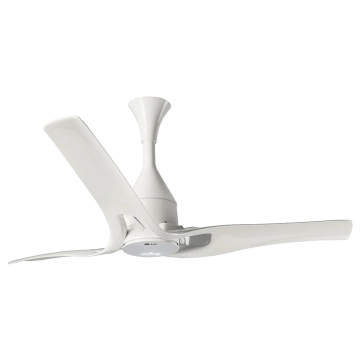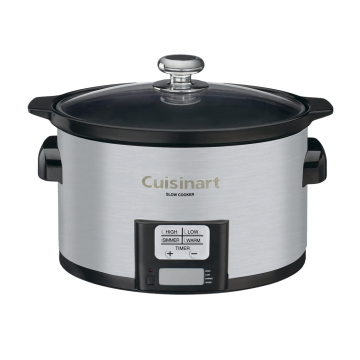Fresh Start February: It's Not Too Late to Start Your Healthy Eating Journey
Posted:
February 21, 2023
Categories:
Newsroom

Fresh Start February: It's Not Too Late to Start Your Healthy Eating Journey
February has arrived, and you're finally ready to leap towards a healthier lifestyle. Maybe you're a little behind, but don't be too hard on yourself, many people struggle with this journey, but it's never too late to start. In fact, statistics show that losing weight, exercising more, and eating healthier are among the most popular New Year's resolutions.
But first what exactly does a healthy diet entail? The idea of healthy eating doesn't have to be complicated or restrictive. It's about feeling confident, having more energy, improving your health, and boosting your overall mood, not about being excessively thin or depriving yourself of the foods you enjoy eating.
Many of us have established eating habits and routines over time, some good and others not that great. Still, even if you're on the end of that spectrum and have been eating poorly for years without adverse effects, it's essential to recognise the need for improvement and shift to a healthier lifestyle. However, it's important to note you can't completely alter your diet and expect your body to respond positively. Making abrupt, drastic adjustments, such as exclusively eating salads, may help with short-term weight loss, but these radical changes are neither healthy nor sustainable.
Thoroughly improving your eating habits requires a systematic approach that includes evaluation, replacement, and reward. Setting goals that complement your lifestyle increases your chances of successfully developing and maintaining a healthy diet, but it requires patience and effort. If you also find all the conflicting nutrition and diet advice out there confusing, you're not alone. You can cut through the chaos and develop a healthy diet without confusion with these helpful tips.
Evaluation
Evaluate your specific eating habits, both good and bad, as well as your triggers for unhealthy eating. Making the switch to a healthier diet does not have to be all or nothing. Instead, you can gradually introduce new foods into your diet for a more manageable and sustainable approach. While some plans may suggest otherwise, we all require a balance of protein, fat, carbohydrates, fibre, vitamins, and minerals to maintain a healthy body, but you do not need to remove certain food groups from your diet; instead, select the most nutritional options.
The key to maintaining a healthy and balanced diet is to incorporate these essential food groups: Protein, Fibre and Carbohydrates into your diet.
Protein provides the energy you need to get up and go while improving your mood and cognitive function. Then there are foods with dietary fibre such as grains, fruits, vegetables, nuts, and beans, that can help reduce the risk of heart disease, stroke, and diabetes. Fibre can also help with weight loss and enhance the appearance of the skin. Lastly, carbohydrates provide the body with its primary energy source to support bodily functions and physical activity. Though carbs are often vilified in weight loss regimens, they shouldn't be omitted. Instead, opt for unrefined carbs such as vegetables, whole grains, and fruits over sweets and simple sugars.
If you're looking for a simple way to integrate these nutrients into your diet, smoothies are a quick way to combine protein, fruits, vegetables, and nuts altogether. With the KitchenAid 3-Speed Blender, you can start making fruit smoothies, protein shakes, and green juices. With three blending speed options, you can crush, blend or puree much more in less than 10 minutes.
Replacement
Replace processed foods with whole foods when possible; this is the foundation of a balanced diet. You can improve your eating habits by purchasing appliances that will assist you in preparing and preserving meals for longer. For example, if you tend to eat junk food at lunch, consider making more home-cooked meals.
Since behaviour change sounds easier than it is, we recommend taking a few steps and identifying the type of meals you have throughout the week to create a meal plan and eating schedule. Healthy eating involves both what you eat and how you eat.
The use of a Power XL Air Fryer can aid in minimising the quantity of oil absorbed by foods. Air frying is considered healthier than pan frying as it drastically cuts calories by up to 80% per cent and includes significantly less fat. In addition, this alternative way of cooking may assist with some of the other negative impacts of frying foods in oil. Less oil means fewer calories consumed, which can reduce the risk of weight gain, obesity, and other health issues.
Make time for breakfast. Skipping breakfast causes you to become hungrier faster throughout the day and slows down your metabolism. Try starting your day with simple meals like yoghurt or a fruit bowl.
Don't skip any meals or snacks. Try eating a healthy snack between lunch and dinner so you will be less likely to purchase fast food on your way home or have a sugary snack during the day. Pre-made fruit bowls and diced vegetables can be a good meal or snack replacement. Aim to eat at least five small meals daily, including fruits and vegetables. Fruit bowls are easy, quick, and rich in nutrients. Convenience makes you more likely to choose fruits when you are hungry. If you have it on hand, why wouldn't you eat it?
Keep frozen fruits and veggies in the LG French Door Refrigerator overnight. With features like Moist Balance Crisper; a special grid that guarantees the freshness of your food by controlling the humidity of the compartments in the refrigerator and LINEAR Cooling; reduces temperature fluctuations. These features will assist in keeping flavours fresh for up to 7 days.
Reward
Celebrate your achievements. Divide your larger goals into smaller milestones and reward yourself after each one. Treat yourself to a cheat meal or a new appliance to reinforce the healthy diet you're trying to accomplish.
Keep track of your progress. A fitness tracker can keep you inspired and motivated by displaying your daily calorie burn and intake. This will also help keep you on track, monitor your progress, and allow you to make adjustments and rewards as needed.
When it comes to healthy eating goals, you must be specific, realistic, and patient with yourself. Consult your doctor or healthcare professional to develop a strategy if you need assistance identifying a particular health goal for the New Year.
Rather than stating your wish to lose weight, specify how much you want to shed and set realistic short-term targets. Make a commitment to exercise at least three times per week instead of just voicing your desire to go to the gym.
Rather than committing to eating a salad every day for the rest of your life if you rarely eat vegetables, try adding a serving of vegetables to a meal each day. Then, over the year, gradually increase to more servings per day.
Don't let perfectionism become the enemy of the good. If you want to eat healthier, evaluate your eating habits, plan ahead so you can change appliances or meal prep when necessary, and do the work, but remember to reward yourself.


